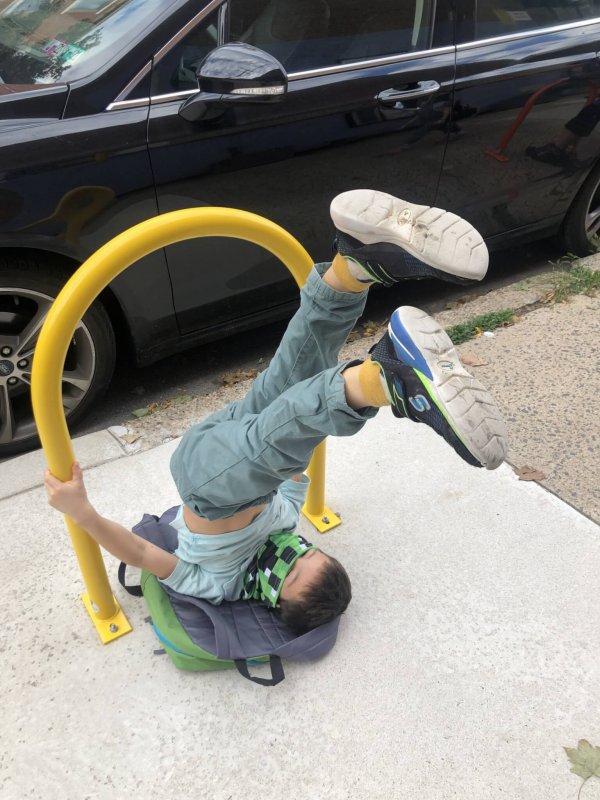
An eye for an eye and a tooth for a tooth. Is this justice in general? Is it how we do justice at Makom Community? What kind of justice system do we want reflected in our brit (two-way promise) for this year? Keep reading to find out!
Garinim
What’s a punishment? How is it different from a consequence? Which should happen and when and why? Last week the Garinim (preK and K kiddos) took a deep dive into these questions as we explored what kinds of responses to mistakes are examples of tzedek (justice). Here are three scenarios we unpacked:
- You’re coloring next to a friend. They scribble all over your paper. What should happen next?
- They should say sorry.
- You should ask them to stop.
- They should be punished.
- They should have to move seats away from you.
- The teacher/grownup should scold them for what they did.
- You should erase the scribble if you can or get a new paper.
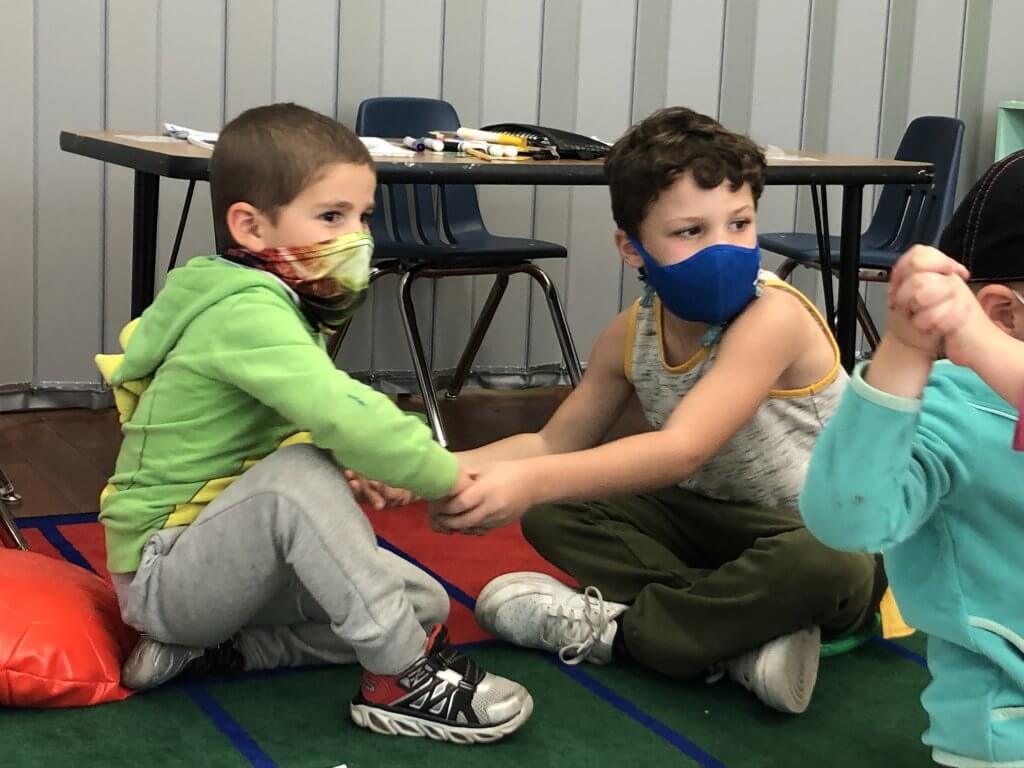
- You run a race with some friends. One of them calls you a loser when you don’t make it to the finish line first. What should happen next?
- They should be put in time out.
- You should switch who’s considered the loser and winner of the race.
- They need to start the race over.
- You can go to the Ohel Mo’ed (Tent of Meeting) to know the truth by checking in with God.
- The rest of Bnei Yisrael (the Jewish People) who were punished by God can talk to both of you about their experience, like to reassure you that the person who called you “loser” would be punished.
- Your friend gets angry and kicks you in the shins. What should happen next?
- They shouldn’t be allowed to kick anymore.
- You should wear shin guards whenever you see them. You can be sneaky about it – wear a whole soccer uniform and pretend you have soccer practice so it won’t be weird that you’re wearing shin guards.
- You should move away from them.
- Ignore them.
- Get help – tell the teacher or the grownup responsible for them.
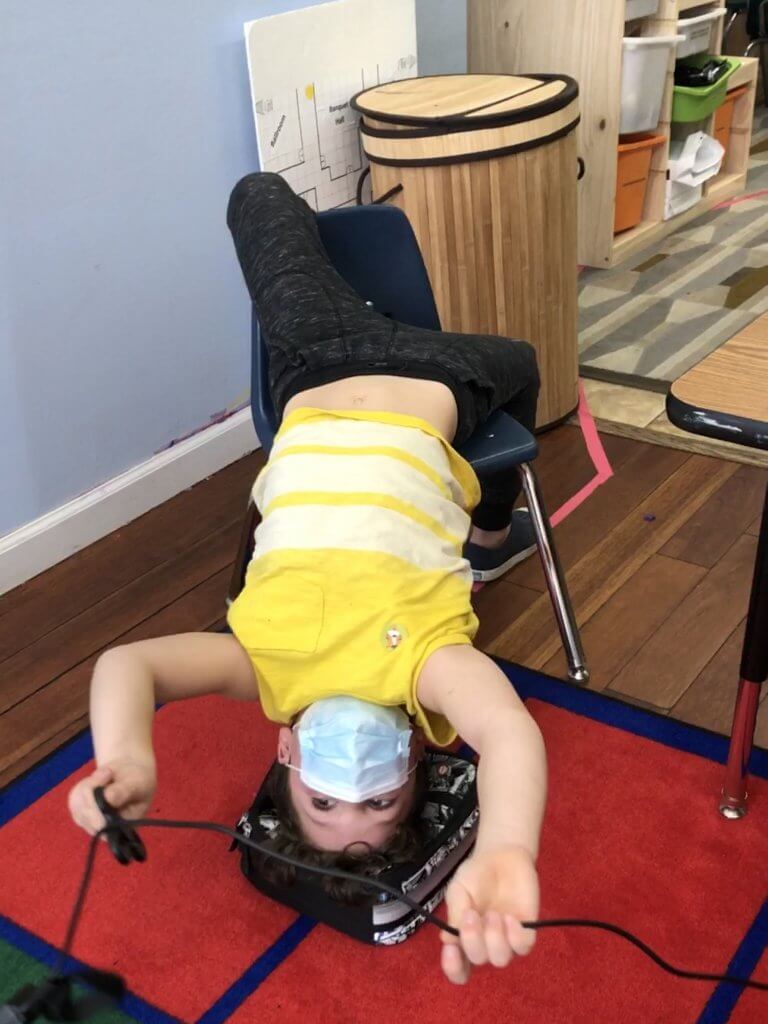
After coming up with these ideas, we learned about a well-known and controversial rule from the Torah about appropriate consequences: an eye for an eye (Leviticus 24:19-21). According to this rule, if I break someone’s arm, then my arm should be broken. So if my friend kicks me in the shins, someone should kick them in the shins. Here are some of our initial reactions:
- Why would they have to get the same thing done back to them?!
- That doesn’t make any sense!
- I don’t like this – can we write our own torah?
- That’s only fair to someone who doesn’t know what fairness is.
- That’s definitely not tzedek because if you do the same thing back to the person, then they’ll think you’re mean, or they’ll think that it’s OK to do things like that, and then it’ll just keep going till it spreads all over the world.
Despite the Garinim’s unanimous and resounding assertion that “an eye for an eye” is NOT a good system for justice, we noticed that it still happens. Not just in general, but that we ourselves sometimes do it. We brought up the example from that day’s walk from Chester Arthur to Makom Community where one kid said something mean, so the other kid said a mean thing back, then the first kid kicked, so the second kid kicked back. Why do we do that?
- If I’m hurt then I want the other person to feel what I’m feeling.
- I think that maybe if they feel hurt too that they would stop doing the mean thing in the first place.
As we move forward with building our classroom brit (two-way promise) for the year, I hope we can remind ourselves of our instinctive reactions to respond with kindness and compassion, even in moments when big, negative feelings make reciprocal hurt appealing.
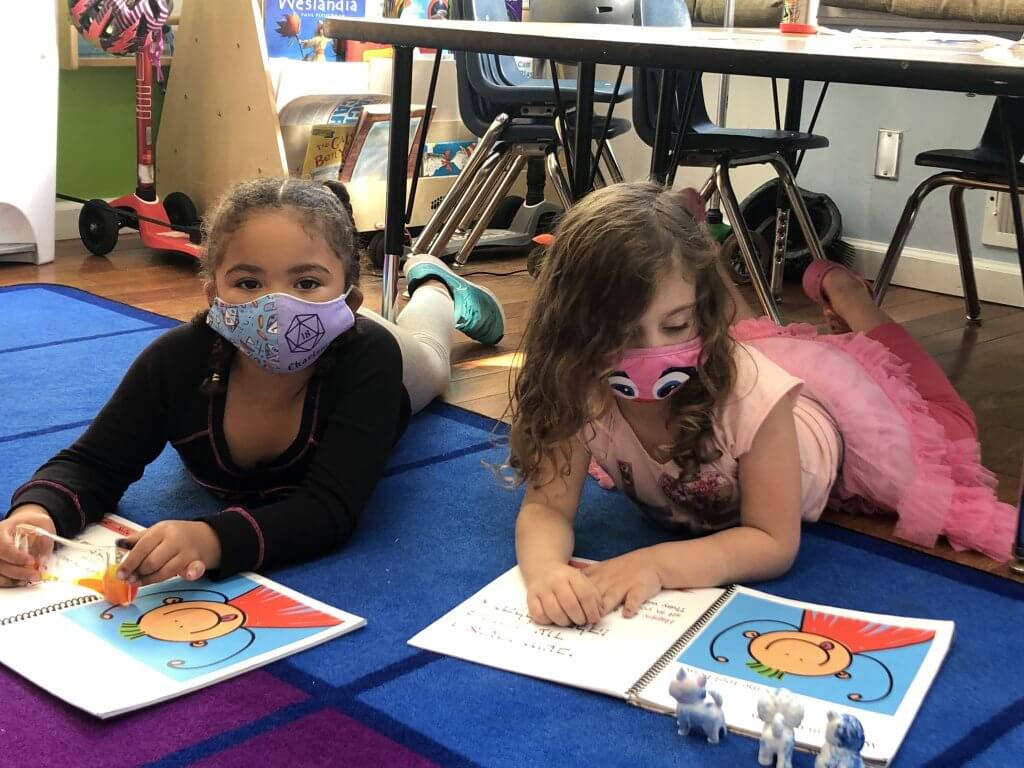
Shorashim
This past week the Shorashim (first and second graders) also discussed different ways of going about justice in our communities. We looked at several scenarios which employ a “measure for measure” justice system.
In one of the situations we reflected on, two siblings are decorating cupcakes together in the kitchen. They begin to argue over who gets to use the rainbow sprinkles since there isn’t very much left. The first sibling gets really angry and whacks their younger sibling’s cupcake to the ground. Their grownup comes over and says “That is absolutely not ok. Since you ruined your siblings cupcake, I am going to take yours away, then it will be equal.”
Kids were of the opinion that this was absolutely not a good solution. When asked what could have happened differently, most kids were not concerned with the punishment aspect.
- I would have just got more sprinkles.
- They could have cut the cupcake in half. That would have been more fair.
They focused on figuring out solutions that would have prevented the issue from happening in the first place.
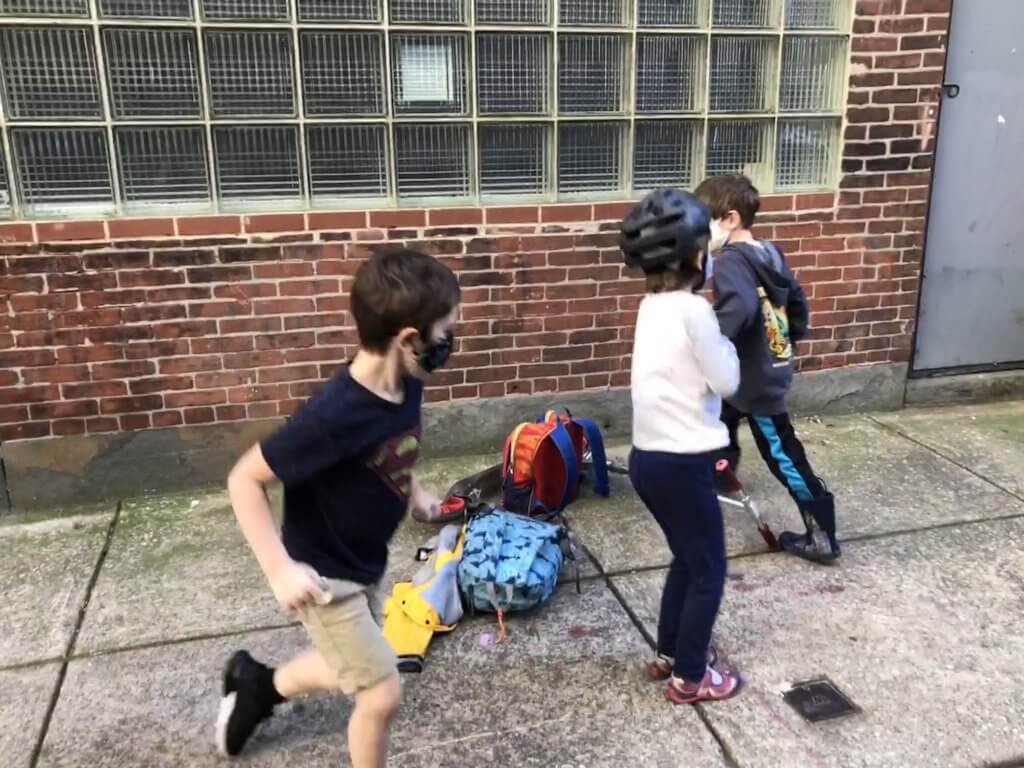
We moved on from our hypothetical situation to the text, which describes God’s justice system of “fracture for fracture, eye for eye, tooth for tooth.” While most kids agreed this was not necessarily a great system, opinions did differ:
- If you break someone’s arm you should never get your arm broken.
- You should be punished if you do something wrong, but only if you did it on purpose. If you did it by accident you can just say sorry.
Kids did note that this way of creating justice in the Torah is very different from how we create justice at Makom Community, where we “say sorry or fix our mistake.”
We brainstormed some of the other ways we do justice at Makom by keeping each other safe. Each kid picked one thing to expand upon through art. Kids illustrated:
- The correct way to wear a mask
- How to use “walking feet”
- Saying sorry to a friend when we make a mistake
- Washing hands
We had so many interesting conversations on this topic, and it was especially exciting to see Shorashim come to different conclusions and form their own opinion on justice and what happens when we make mistakes. We’re looking forward to seeing how their opinions change and grow as we delve deeper in the coming weeks.
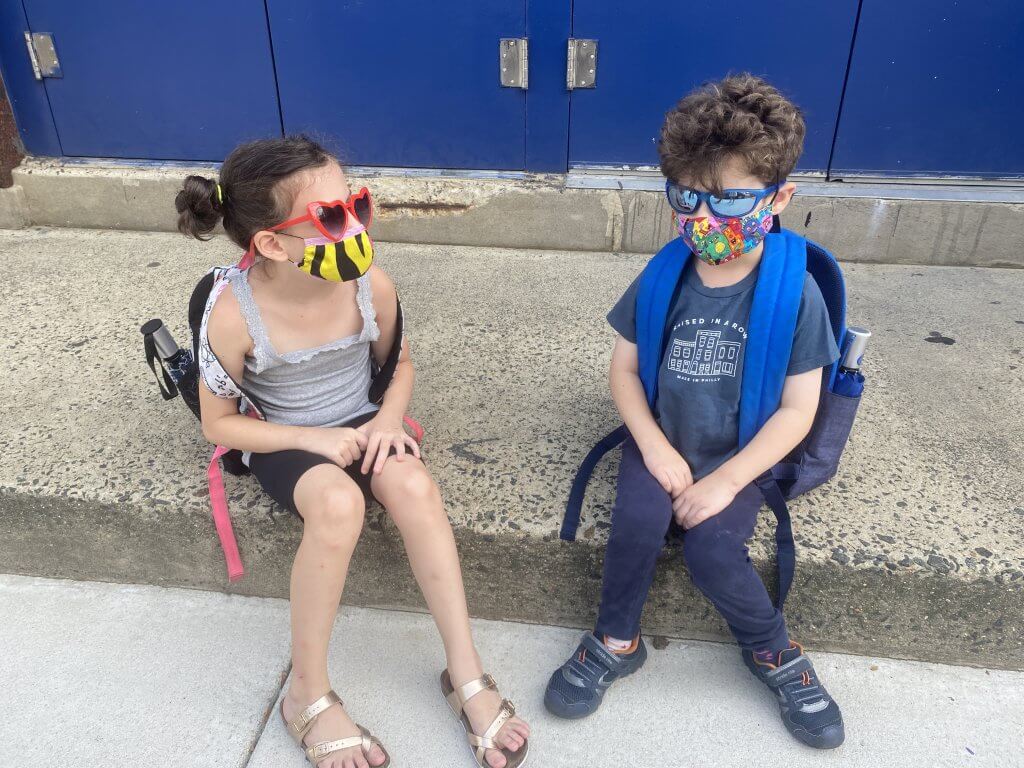
Nitzanim
Last week in Nitzanim (3rd and 4th grade) we began the process of creating our brit. We started by talking about what a brit actually is.
- Something everyone does
- A two-way promise
- An agreement
- Rules
At Makom Community, we collaborate on a brit together, coming up with expectations that will keep us all safe and having fun in our classes. We began with a brainstorming session, adding everything onto a large piece of paper to narrow down in the future. The Nitzanim came up with some guidelines that we thought were really important.
- Treat everyone like your friend
- One voice at a time
- Respect what others ask you to do
- Try not to be a distraction to others
- Remember our Judaism
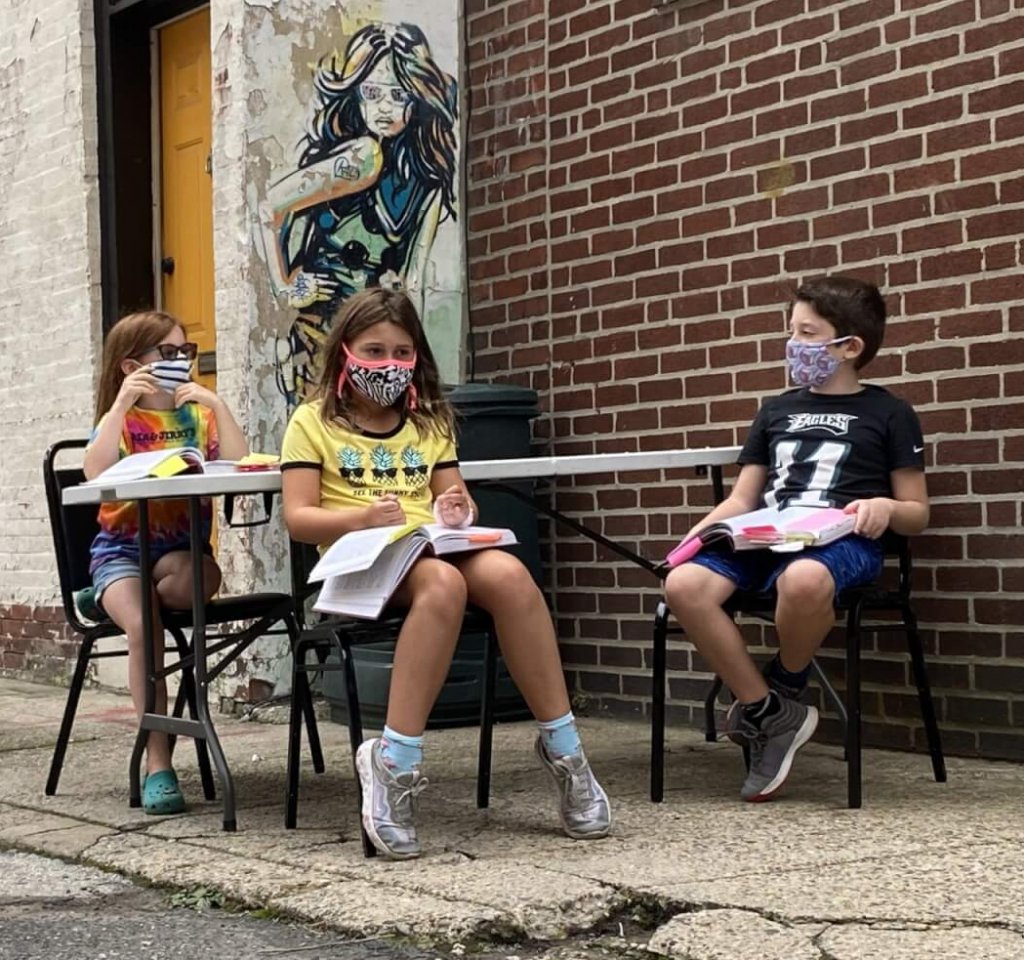
One of the first expectations we came up with was “teachers learn from students, and students learn from teachers.” Our community values interpersonal connection and learning from the people around us, and this is a way that we can all encourage tzedek (justice) in our own classroom. It’s not a very just system if only one group of people gets to learn. This expectation also encourages us to remember that we all have something valuable to contribute to class. The teachers often learn something new, or look at something from a different perspective, because of a comment that a student makes. In this way, we all get to be teachers and students. We are excited to see what the Nitzanim ultimately choose to put on our final brit!
